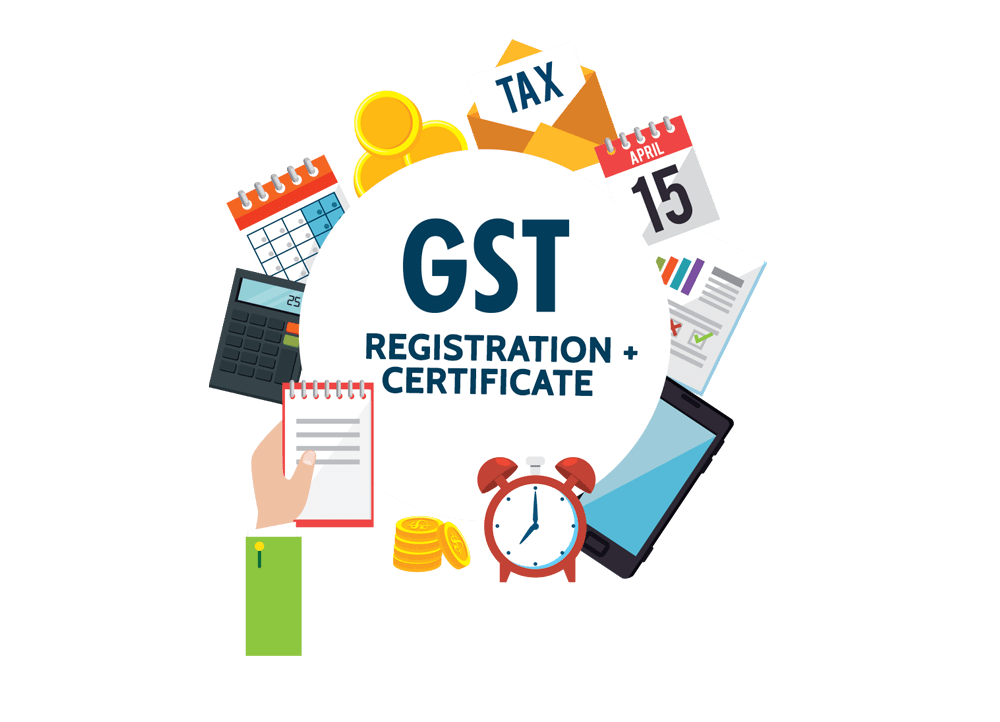Professional Tips for Picking the Best GST Registration Services in Singapore
Wiki Article
From Beginning to End Up: The Ultimate Roadmap to GST Registration for Services Looking For Financial Security
Browsing the intricacies of Item and Services Tax (GST) enrollment is a vital step for services aiming for economic stability. From understanding the essential concepts of GST to adhering to post-registration standards, the process can appear intimidating in the beginning glimpse. Damaging down the roadmap into workable actions can enhance the registration journey for organizations looking to boost their economic standing. Allow's check out the vital parts that comprise this best roadmap and find how each phase adds to laying a solid foundation for monetary success.Comprehending GST Fundamentals
Digging right into the fundamental principles of Goods and Provider Tax Obligation (GST) is necessary for gaining a comprehensive understanding of its effects on services and the economy. Input Tax Debt (ITC) is a considerable function of GST, permitting services to claim credit history for tax obligations paid on inputs, minimizing the overall tax obligation concern. Comprehending the basics of GST is important for organizations to conform with tax obligation policies, manage their finances effectively, and contribute to the nation's financial development by taking part in a transparent tax system.Qualification Requirements for Enrollment
To register for GST, businesses should fulfill certain qualification criteria established by the federal government. The main qualification need is that any company entailed in the supply of items or solutions with an annual aggregate turn over above the threshold restriction set by the authorities need to register for GST. Since the current laws, the threshold limit for GST enrollment is an annual aggregate turnover of 40 lakhs for organizations running within a state, other than for special group states where the limit is 20 lakhs. Furthermore, specific organizations are called for to sign up for GST irrespective of their turnover, such as interstate suppliers, laid-back taxable individuals, and organizations liable to pay tax obligation under the reverse cost device. It is essential for services to completely examine their turn over and transaction kinds to identify their GST registration obligations precisely. Failure to sign up for GST when eligible can lead to fines and lawful repercussions, making it vital for organizations to follow the defined eligibility criteria.Documents Required for Registration
Having actually fulfilled the qualification requirements for GST registration, organizations need to now guarantee they have the requisite papers in area to continue with the registration procedure effectively. The records needed for GST enrollment generally include proof of business constitution, such as partnership deed, enrollment certification, or unification certification for different kinds of businesses. In addition, businesses need to offer papers developing the principal location of organization, such as a rental contract or electricity expense.Step-by-Step Registration Process
Commencing the GST enrollment process involves a collection of organized steps to make certain a seamless and certified registration for companies. The primary step is to go to the GST website and fill in the enrollment type with exact information of business entity. Following check my source this, the candidate gets a Temporary Reference Number (TRN) which is utilized to return to the application process if it's not completed in one go.Following, all required papers based on the list provided by the GST portal demand to be submitted. These papers usually include evidence of business enrollment, address and identification proofs of marketers, economic statements, and service entity's PAN card.

Post-Registration Conformity Standards

Final Thought
To conclude, businesses looking for monetary stability should recognize the fundamentals of GST, satisfy eligibility requirements, gather required records, comply with the step-by-step enrollment process, and adhere to post-registration standards - Best GST registration services in Singapore. By adhering to these steps, companies can guarantee compliance with tax guidelines and maintain financial stability in the long runAdditionally, certain businesses are called for to sign up for GST irrespective of their turn over, such as interstate providers, casual taxed individuals, and services responsible to pay tax under the reverse charge system.Having fulfilled the eligibility standards for GST registration, organizations need to now guarantee they have the requisite files in place to continue with the enrollment procedure successfully. The papers required for GST enrollment generally consist of proof of organization constitution, such as collaboration action, registration certificate, or incorporation certificate for various types of services. Furthermore, organizations need to supply documents developing the major place of organization, such as a rental agreement or power bill.Commencing the GST enrollment procedure involves a series of organized actions to guarantee a smooth and compliant registration for businesses.
Report this wiki page